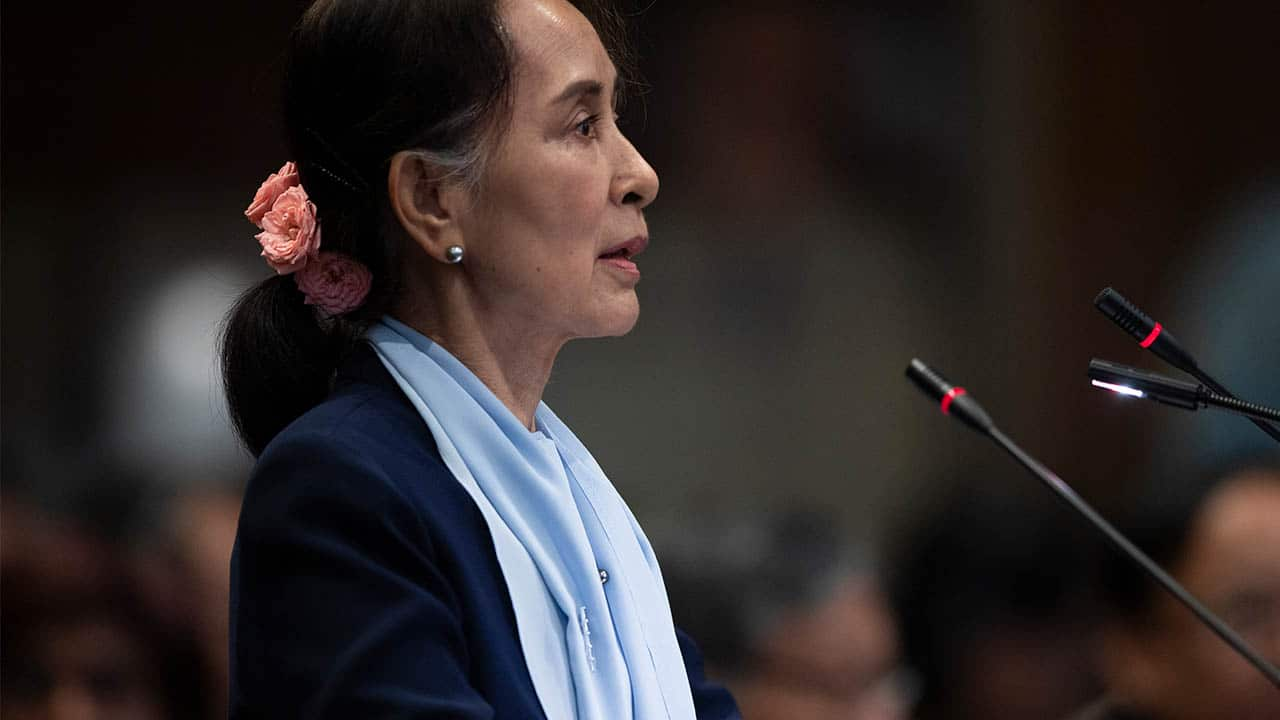Almost 200 Rohingya Muslims have sailed more than 1500 kilometres to escape Bangladesh refugee camps only to be arrested by Myanmar's navy, the country's military has said.
The boat seizure came just days after Myanmar's leader and Nobel peace laureate Aung San Suu Kyi addressed the UN's top court to deny allegations of a genocidal campaign against the ethnic minority. With the monsoon over and seas relatively calm, increasing numbers of Rohingya Muslims are once again risking their lives attempting to reach Malaysia or Indonesia.
With the monsoon over and seas relatively calm, increasing numbers of Rohingya Muslims are once again risking their lives attempting to reach Malaysia or Indonesia.

Myanmar's leader Aung San Suu Kyi addresses judges of the International Court of Justice. Source: AAP
Bangladeshi authorities say they are stopping one or two boats a week leaving the country's shores, and many more are thought to evade patrols.
Few make it as far south as Kawthaung, Myanmar's southern-most tip, where on Sunday the country's navy picked up the 173-strong Rohingya group, including 69 women and 22 children, a military spokesman said.
"We will hand them over to immigration authorities and police to take action," Zaw Min Tun said, adding they had come from camps in Bangladesh and were heading to Malaysia.
Seven boatmen were also arrested in the vessel's seizure some 217km off Myanmar's coast, he said.
Life is becoming increasingly difficult in the sprawling camps that are home to nearly one million Rohingya, around 750,000 of whom fled a crackdown by Myanmar's military in 2017. Officially they are forbidden to leave the settlements, but the camps' vast size means they are difficult to police.
Officially they are forbidden to leave the settlements, but the camps' vast size means they are difficult to police.

Conditions are bleak inside Bangladesh's Rohingya refugee camps. Source: Kydpl Kyodo
Bangladesh has stoked fear among the Rohingya by erecting barbed-wire fences around the sites and installing checkpoints on nearby roads.
Rights groups condemn the move, saying it transforms the camps into a "big prison".
An internet blackout, the confiscation of SIM cards and phones, and a clampdown on illegal documentation papers are also making refugees' lives even less bearable.
Frustration is also growing in Bangladesh about hosting the refugees, especially after failed attempts to repatriate them.
The Rohingya refuse to return to Myanmar until their security and rights are guaranteed.
Last week, Ms Suu Kyi rejected allegations of genocide against Myanmar at the International Court of Justice, despite admitting the army may have used excessive force against the Rohingya.
Share



